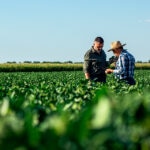The BBVA Foundation Frontiers of Knowledge Award goes to Elke Weber, a pioneer in bringing psychology into the study of climate change
The BBVA Foundation Frontiers of Knowledge Award in the Humanities and Social Sciences category goes to American psychologist Elke Weber in recognition of her research into “environmental decision-making and human responses to climate change.” Weber was the first psychologist to join the IPCC, a group of experts to which she brought her knowledge of decision-making theory.

Research by this Princeton University (USA) professor has shown that extreme weather events, such as hurricanes or forest fires, are likelier to move people to action than climate change as a general concept when it comes to environmental decision-making. Weber also argues that fear or guilt over climate change tends to paralyze rather than mobilize people, as they are emotions that people tend to reject; and that having direct personal experience of the negative impact of climate change is a more powerful mobilizing tool than mere statistics on the global warming process.
According to the citation for the award handed out annually by the BBVA Foundation, Weber also happens to be “an influential environmental policy advisor and participates widely in forums such as the UN Intergovernmental Panel on Climate Change (IPCC).” She was in fact the first to introduce psychology into the campaign considerations of this scientific body in the year 2010.

Up until that point, no expert from the field of psychology had been invited to serve on the IPCC. Weber was the first, out of a team of literally thousands of scientists: “There were more moral philosophers than psychologists on board. In part, it was because the economists thought they knew how people make decisions. And if you assume they make them rationally, you don’t need a psychologist for that,” remarks Weber.
From finance to climate change
In the mid 1980s, Professor Weber began studying decision-making and uncertainty as applied to the financial world. She then took up her first academic appointment at the University of Illinois Urbana-Champaign, where the Dean tasked her with bringing together all the researchers on campus who were working on decision-making, regardless of their field of expertise.
As part of this effort, she organized a series of meetings that gave rise to a field study on perceptions of climate change among farmers in the region. What she discovered from these conversations was that farmers were trying to safeguard their business from the effects of climate change, either by changing their production methods, by using financial means like insurance or forward markets, or by lobbying local policymakers to legislate changes. “It turned out that people were doing one of those three, but not all three together,” she recalls today. “And that’s where I came up with the idea of a single-action bias,” whereby people take one step then stop, when a portfolio of strategies would be a mode optimal approach.
Another conclusion that dates from this experience is that “climate change is, in some sense, a perfect storm. All the things that make behavior difficult for us in other situations, like not eating right or not saving enough for our retirement, are there with climate change in the sense that action is costly right now, and the benefits of the action will come later. But at least with healthy eating and investing, the consequences come back to you, to your future self. With climate change, though, the perception is that the benefits will come back to future generations in far away places. So there’s this collective action component as well. And attribution is much harder too. It’s a tricky scientific issue.”
The three factors most likely to mobilize action on climate change
Professor Weber sums up her research on climate change perception and action in three fundamental insights.
- The first is that climate change does not elicit as much fear as other more concrete extreme events, “hurricanes or forest fires” being the examples she chooses, and are therefore less likely to motivate action without further intervention. “Climate change,” she goes on, “is a statistical phenomenon, and we know that what people care about are concrete events. We care about stories. We care about things that happen to us personally.”
- The second insight belongs to the realm of the emotions. The pessimistic narrative to the effect that the climate change tipping point has already passed is, she says, counter-productive. On the contrary, her research has found that what moves people to action is positive emotions. “Instead of feeling guilty because you’re part of the problem, you feel proud because you’re part of the solution.
- The third insight uncovered by Weber’s research is the immediacy of experience. For her, the most effective means to make people aware is having personally witnessed or lived through something. “When you see it happening in your backyard, when you see hurricanes become so much more intensive and coming every two weeks rather than two per season. I think personal experience is a very powerful teacher.”